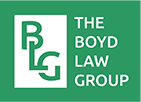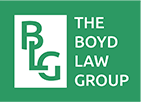The unique challenge presented by the Coronavirus (“Covid-19”) pandemic has resulted in a flurry of legislative responses from the federal and state governments to mitigate the disruptive effects the pandemic will have on individuals and businesses. Part of the federal effort is the Coronavirus Aid, Relief and Economic Security Act (“Act”), which was signed into law on March 27, 2020.
This new law allocates billions of federal dollars for small and large businesses to alleviate the strain Covid-19 has caused as they confront the present crisis. Notably, the Act provides a paycheck protection program, employee retention tax credit incentives for employers, offers deferred payroll taxes and also offers direct lending for businesses. Given the magnitude of the law, it is quite possible that this will be the final, significant federal measure for some time though there is talk of a stimulus plan to follow. The effectiveness of the Act is yet to be determined, and as of this writing many major banks are still working on implementation logistics. The most notable aspects of the Act’s protections for businesses are listed below.
Paycheck Protection
Under the Act, the Paycheck Protection Program will provide eligible businesses with federally guaranteed loans of up to two hundred and fifty (250%) percent of an employer’s average monthly payroll up to a $10 million dollar total. This loan can be used to cover the costs of salaries, health benefits, rent and other listed expenses. Notably, this program is available only to smaller employers – meaning those that employee 499 or fewer employees.
The loans have interest rates below four (4%) percent and can be forgiven if the employer maintains its workforce for the period of coverage, which extends until June 30, 2020. However, reductions in the workforce or wages by more than twenty-five (25%) percent will cause the loan forgiveness to drop by the same percentage. The retention requirement applies retroactively to February 15, 2020, and employers may be required to repay some of the loan if they have already reduced their workforce. An employer can regain the loan forgiveness if it rehires the employees let go or furloughed.
Employee Retention Tax Credit
The Employee Retention Credit (“ERC”) is a limited benefit designed to help eligible employers who keep employees on payroll even if their business suspends operations or closes. The amount of the credit depends on the size of the employer and this credit has a greater benefit for smaller employers. Employers with 100 or fewer employees can obtain the credit not only when operations end, but even if there is just a sharp decline in business as a result of Covid-19.
These credits can reach up to fifty (50%) percent of qualified wages paid to employees from March 13, 2020 until the end of the year 2020. The credits only apply to traditional employment taxes such as The Federal Insurance Contributions Act (“FICA”) and Social Security withholdings.
Deferred Payroll Taxes
One of the more traditional measures in the bill is the deferment of certain payroll taxes for employers. Under the Act, employers are still be required to make payroll tax payments, but such payments just need to be paid over the next two years with half of them due by December 31, 2021 and the second half due by December 31, 2022. For most smaller businesses, this is a very small allowance.
Direct Lending for Mid- and Large-Sized Businesses
In one of its more widely debated provisions, the Act injects $500 billion into a direct-lending program for U.S. businesses. This act covers loans for general business and assistance for key industries, like the airline industry. Businesses that accept loans under this program must abide by certain, temporary restrictions on their ability to buy back company stock and limit compensation for their executives.
A Basic Take-away
In sum, the provisions in the CARES Act may significantly affect or reshape the viability and operations of a multitude of businesses and industries for the foreseeable future. Utilizing these new programs and benefits is, moreover, an evolving process that will force government agencies to promulgate further regulations and guidance and ultimately for courts to interpret these burgeoning legislative efforts.
As a practical matter, the bulk of the significant monetary loans and grants referenced herein can be better understood and selected collaborating with your current banker. Not all banks are ready for this process yet, but the expectation is that the process will be functional by mid next week. Keep in mind, however, that the process is first come first served, so make sure to promptly review and complete applications (many of which are on-line already) and be in touch with your banker ASAP.
As always, The Boyd Law Group stands ready to assist small businesses in navigating the shifting employment and operational landscape at this tumultuous time. To discuss how we can help, please call us at: (800) 617-4BLG. Stay strong and stay well! #theboydlawgroup #letustaketheworryoutofyourwork

